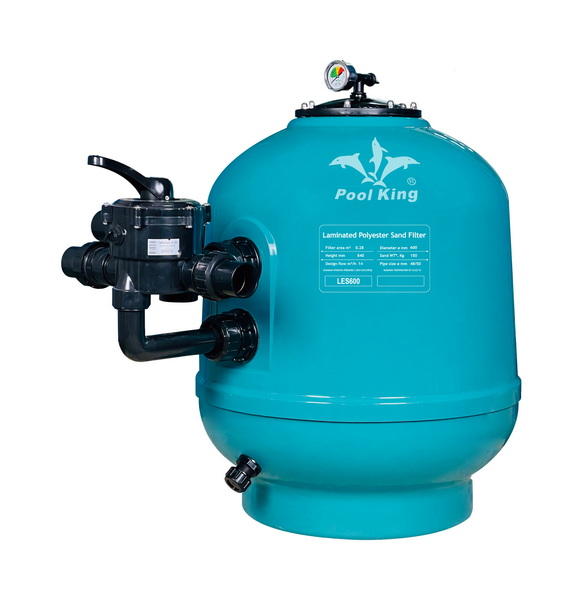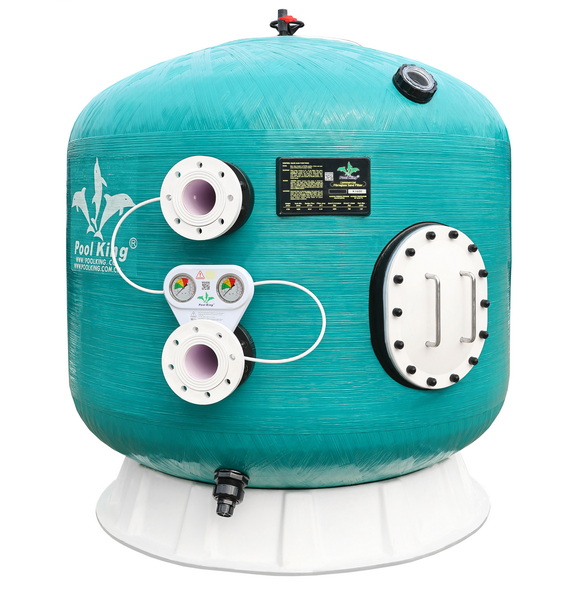Views: 222 Author: Tina Publish Time: 2025-08-02 Origin: Site








Content Menu
>> Purpose-Built for Pool Filtration
>> Intended Use
● Key Differences Between Play Sand and Pool Filter Sand
● Why Play Sand Is Not Recommended for Pool Filters
>> 1. Incorrect Grain Size and Shape
>> 2. Increased Contamination Risk
>> 3. Cloudy Water and Poor Filtration
>> 4. Potential Equipment Damage and Warranty Voids
>> 5. Long-Term Effects and Hidden Costs
● Expert Opinions and Real-World Experiences
● Pool Filter Sand Alternatives
>> 1. Zeolite
● Installation and Maintenance Tips
>> How to Install Pool Filter Sand
● Frequently Asked Questions (FAQ)
>> 1. What is the best sand for pool filters?
>> 2. Can I use other types of sand, like masonry or landscaping sand?
>> 3. Are there alternatives to pool filter sand?
>> 4. How often should I replace my pool filter sand?
>> 5. Can using play sand void my pool filter's warranty?
Maintaining a crystal-clear and healthy swimming pool depends heavily on your filtration system and, more specifically, the type of sand used within your sand filter. Amid rising costs and easy availability, many pool owners wonder: can you use play sand in a pool filter? This article takes an in-depth look at the science, risks, and practicalities behind using play sand, compares it to pool filter sand, and helps you make the best choice for your pool's long-term health and efficiency.

Pool filter sand is specially graded silica sand designed for pool filtration systems. The key characteristic is its uniform particle size—most often classified as #20 grade silica sand (diameter: 0.45mm to 0.55mm). This optimal grain size ensures effective trapping of fine debris and contaminants from pool water.
- Uniform shape & size: Ensures maximum filtration efficiency and consistent water flow.
- Minimal dust & debris: Specially cleaned and processed for pools to prevent contamination.
- Durability: Resists breakdown over time, reducing risk of clogging or sand entering the pool via return jets.
- Chemical inertness: Does not react with pool chemicals like chlorine, ensuring stable water chemistry.
The design and grading of pool filter sand are critical for keeping your filtration system running at peak performance, allowing you to enjoy clean and safe water all season long.
Play sand, sometimes called playground sand, is typically found in playgrounds and sandboxes. It is made primarily for safety, softness, and affordability rather than industrial filtration. The grains in play sand are often irregular in size and shape, containing a mixed range from fine dust to coarse particles. It is not cleaned, graded, or processed according to standards required for pool filtration.
- Children's playgrounds and sandboxes: Safe texture for kids' play.
- Landscaping: Decorative purposes or soil conditioning.
- Crafts and gardening: Non-toxic but not purity tested.
Unlike pool filter sand, the focus of play sand production is not on performance in fluid filtration but on texture and safety for recreational use.
| Feature | Pool Filter Sand | Play Sand |
|---|---|---|
| Grain size | Uniform (#20 silica, 0.45–0.55mm) | Irregular, varied |
| Cleaning/purity | Thoroughly washed, minimal dust | Not well-washed, contains dust |
| Heavy metals/contaminants | Safe for pools | May contain heavy metals (lead) |
| Filtration efficacy | High, traps fine particles | Poor, lets particles pass |
| Risk to pool equipment | Minimal | High – can damage filter |
The table highlights why only pool filter sand meets the stringent demands required to keep pool water clean and equipment safe.
Pool filters are engineered to operate with sand grains of very specific size and shape, optimized for maximum surface area and water flow characteristics. Play sand particles tend to be irregular:
- Uneven grain sizes lead to inconsistent filtration, allowing fine debris and dirt to pass through.
- Irregular shapes cause packing issues inside the filter bed that reduce efficiency and increase pressure on filter components.
- This can result in clogged laterals or filter sand bed channeling, creating pathways where water bypasses the sand, reducing filtration efficacy.
Play sand is not subjected to rigorous washing or contaminant screening. Thus:
- It may contain dust, dirt, clay, or organic matter, which can promote algae or bacteria growth in the pool.
- Heavy metals such as lead or arsenic may be present due to sourcing from non-controlled environments.
- These contaminants can compromise water safety and increase pool chemical demands.
Due to the presence of fine dust and irregular granules:
- Play sand causes cloudy water as suspended particles aren't adequately trapped.
- Pool water clarity diminishes rapidly and consistently.
- You may experience constant backwashing needs to clear clogged sand beds.
- Increased maintenance frequency affects pool enjoyment and ongoing costs.
The improper grain size and contaminant load in play sand may cause:
- Abrasive damage to filter laterals and piping.
- Sand particles escaping the filter and entering the pool's plumbing can damage pumps and valves.
- Overworked filters can prematurely fail, requiring costly repairs or replacements.
- Most manufacturer warranties specifically require use of #20 grade silica sand, so using play sand likely voids warranty coverage.
Many may be tempted to use cheaper play sand to reduce immediate costs, but the long-term consequences include:
- Increased chemical usage due to poor filtration.
- More frequent filter cleanings and potential repair bills.
- Reduced water enjoyment caused by poor aesthetics and potential health hazards.
- Potential liability if waterborne pathogens increase due to poor filtration.

Pool professionals and filtration experts universally caution against using play sand:
> “Play sand is not designed for pool filters. Different grain sizes cause sand to clog the filter or escape it entirely, leading to poor filtration and mechanical failures.” – Pool Service Technician
> “Using improper sand size or type in sand filters can drastically shorten the lifespan of your equipment and compromise water quality.” – Pool Equipment Manufacturer
Many pool owners report:
- Sand blowing back into the pool on return jets.
- Water turning murky despite filtration system operation.
- Filter needing repeated cleaning or premature replacement.
If you want to explore alternatives that may increase filtration efficiency beyond traditional silica sand, consider:
- A natural volcanic mineral with a porous structure.
- Excellent at removing ammonia and heavy metals.
- Filters particles smaller than sand can trap.
- Longer lifespan than silica sand and less backwashing required.
- Made from recycled, cleaned glass crushed to specialty sizes.
- Angular grains with sharp edges trap finer particles.
- Resists compaction and channeling better than sand.
- Eco-friendly and recyclable after use.
- Emerging technologies use polymer beads to filter water.
- Lightweight, easy to clean, and durable.
- More expensive but offer long-term benefits in efficiency and maintenance reduction.
While these alternatives offer advantages, they should still be sourced from reputable manufacturers designed for pool filtration systems.
- Always buy #20 grade silica pool filter sand from a trusted pool supply retailer.
- Check the sand's uniform grain size, angular shape, and absence of debris.
- Avoid generic landscaping or construction sand even if particle size appears similar.
1. Remove the old sand completely from the filter tank.
2. Inspect internal components (laterals, standpipes) for damage or wear; replace if needed.
3. Rinse new sand lightly to remove surface dust before pouring.
4. Add sand slowly and evenly into the filter tank, avoiding disturbance of filter laterals.
5. Reassemble the filter and perform a backwash cycle as per manufacturer's instructions.
- Backwash your filter regularly based on pressure gauge readings to remove accumulated debris.
- Inspect sand annually for signs of degradation or contamination.
- Fully replace the sand every 7 to 10 years to maintain optimal filtration performance.
Using play sand in your pool filter may seem like a cost-saving shortcut, but it comes at the expense of your pool's health, your equipment's longevity, and your own peace of mind. Top-grade pool filter sand, or well-tested filter media alternatives like zeolite or glass, ensure:
- Brighter, cleaner water
- Reduced maintenance and backwashing frequency
- Longer-lasting filtration equipment
- Improved pool safety and swimmer health
Invest in the right materials specified by your filter manufacturer to protect your investment and enjoy your pool to its fullest.

The best sand is #20 grade silica pool filter sand with uniform grain size ranging from 0.45 to 0.55 mm. It is specially processed for filtration efficiency and safety.
No. Masonry and landscaping sand have inconsistent grain sizes and impurities that can clog the filter, damage equipment, and contaminate pool water.
Yes. Zeolite and recycled glass media are excellent alternatives that may enhance filtration performance and ease maintenance.
Replacing your pool filter sand every 7 to 10 years is recommended, or sooner if you notice declining water clarity or filter pressure problems.
Yes. Most manufacturers require the use of the specified filter sand type. Using play sand or other substitutes can void warranties and lead to non-covered repairs.
